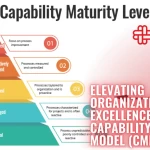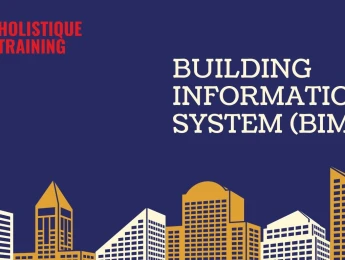This advanced course delves into Building Information Modelling (BIM), focusing on its application in project management. Participants will learn the fundamentals of BIM, explore its benefits in project planning and execution, and develop skills to manage BIM projects effectively. The course combines theoretical knowledge with practical applications, equipping project managers with the tools to leverage BIM for improved project outcomes.
By the end of this course, participants will:
- Understand the principles and concepts of Building Information Modelling (BIM).
- Develop skills to implement and manage BIM in construction projects.
- Learn to utilise BIM for enhanced project planning, execution, and monitoring.
- Explore strategies for collaboration and communication using BIM.
- Enhance their ability to lead BIM projects and drive innovation in construction management.
This course is intended for:
- Project managers in the construction industry
- Construction managers and site supervisors
- Architects and engineers
- BIM coordinators and managers
- Graduate students in construction management, architecture, and related fields
The course employs a blend of instructional methods, including:
- Interactive lectures
- Hands-on BIM software sessions
- Group discussions and case studies
- Expert-led Q&A sessions
- Comprehensive course materials and resources
Day 5 of each course is reserved for a Q&A session, which may occur off-site. For 10-day courses, this also applies to day 10
Section 1: Introduction to Building Information Modelling (BIM)
- Overview of BIM and its significance in the construction industry
- Key concepts and terminology in BIM
- The BIM project lifecycle and stages
Section 2: BIM Implementation and Management
- Strategies for successful BIM implementation
- Roles and responsibilities in a BIM project
- Developing a BIM execution plan (BEP)
Section 3: BIM Tools and Technologies
- Overview of popular BIM software and tools
- Hands-on sessions with BIM applications
- Integrating BIM with other project management tools
Section 4: Collaboration and Communication in BIM
- Enhancing team collaboration using BIM
- Effective communication strategies in BIM projects
- Case studies on successful BIM collaboration
Section 5: Practical Applications and Future Trends
- Real-world applications and best practices in BIM
- Emerging trends and innovations in BIM technology
- Developing action plans for BIM project management
- Course review and expert Q&A
Upon successful completion of this training course, delegates will be awarded a Holistique Training Certificate of Completion. For those who attend and complete the online training course, a Holistique Training e-Certificate will be provided.
Holistique Training Certificates are accredited by the British Assessment Council (BAC) and The CPD Certification Service (CPD), and are certified under ISO 9001, ISO 21001, and ISO 29993 standards.
CPD credits for this course are granted by our Certificates and will be reflected on the Holistique Training Certificate of Completion. In accordance with the standards of The CPD Certification Service, one CPD credit is awarded per hour of course attendance. A maximum of 50 CPD credits can be claimed for any single course we currently offer.
- Course Code IND04 - 124
- Course Format Classroom, Online,
- Duration 5 days









